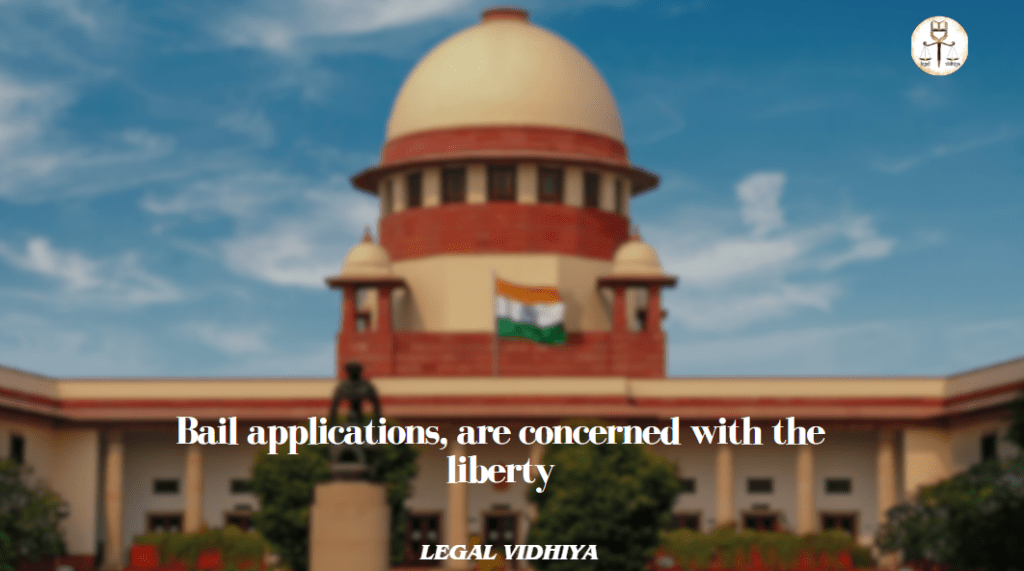
On December 11, the Supreme Court highlighted its deep concerns regarding the sluggishness in the High Courts’ processing of anticipatory bail and regular bail petitions. The court emphasized that despite the Supreme Court’s prior directives, the delay in listing and resolving these applications significantly impacts the personal freedoms of individuals seeking immediate relief.
Supreme court firmly believe that an ambiguous order concerning anticipatory bail or regular bail, especially after the case has been accepted, will inevitably cause delays in properly assessing the application. delay poses a serious threat to an individual’s liberty. Considering these factors, the Court has emphasized that cases affecting personal freedom must be promptly addressed. It’s concerning that despite multiple directives, this situation persists.
Therefore, the court urge the respected Single Judge of the High Court to promptly and fairly decide the pending anticipatory bail application based on its merits and in accordance with the law. It also suggested that this be completed within a period of four weeks from the receipt or presentation of this Order. During this time, court grant temporary protection against arrest to the petitioner. It’s important to clarify that this interim protection should not influence the consideration of the petitioner’s bail application, which will be assessed independently. Given the recurring nature of such situations in various courts, a copy of this order should be sent by the Registry to the Learned Registrar General and all relevant parties of the High Courts. This action aims to ensure the swift listing of bail applications and anticipatory bail applications.
Thus the Special Leave Petition stand was disposed.
Written by Samruddhi Kulkarni from ILS Law College pune (BA.LL.B), intern under legal vidhiya
Disclaimer: The materials provided herein are intended solely for informational purposes. Accessing or using the site or the materials does not establish an attorney-client relationship. The information presented on this site is not to be construed as legal or professional advice, and it should not be relied upon for such purposes or used as a substitute for advice from a licensed attorney in your state. Additionally, the viewpoint presented by the author is of a personal nature.




0 Comments